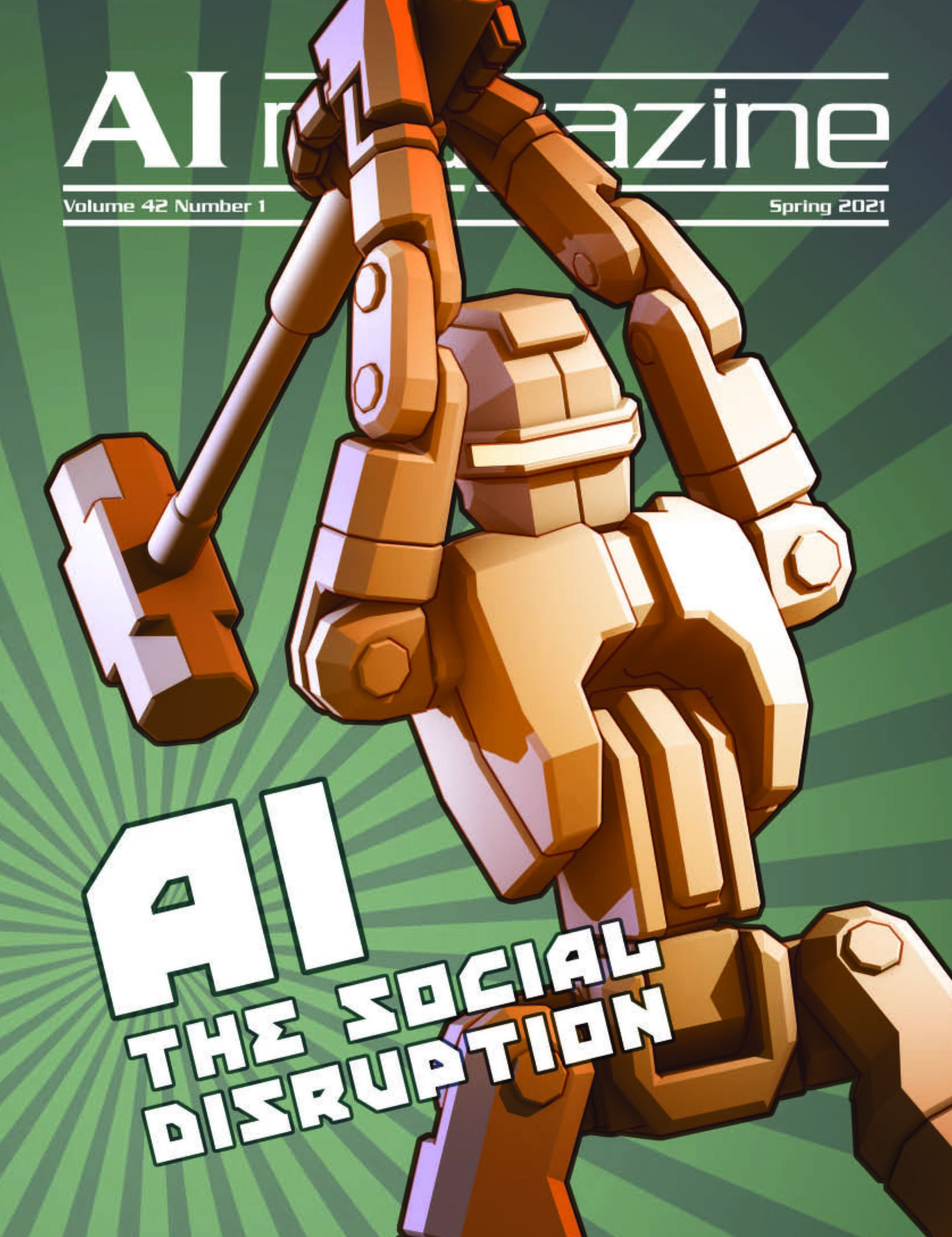Zeitenwende — Turn of Eras
Contributors
Meinolf Sellmann
GE Global Research
Bart Selman
Cornell University
Rethinking the Maturity of Artificial Intelligence in Safety-Critical Settings
Contributors
Mary L. Cummings
Duke University
Artificial Intelligence and the Future of Work: A Proactive Strategy
Contributors
Thomas A. Kochan
MIT Sloan School of Management, Institute for Work and Employment Research ISIP member, AIAA Associate Fellow, SPIE Fellow, and IEEE Fellow.
Artificial Intelligence Community and Self
Contributors
Peter Tu
General Electric
Procedural Democracy and Electronic Agents
Contributors
Suman Gupta
The Open University
Artificial and Human Intelligence in Mental Health
Contributors
Mariano Sigman
Universidad Torcuato Di Tella
Diego Fernandez Slezak
Universidad de Buenos Aires
Lucas Drucaroff
Universidad de Buenos Aires
Sidarta Ribeiro
Federal University of Rio Grande do Norte
Facundo Carrillo
Universidad de Buenos Aires
Machine Learning Techniques for Accountability
Contributors
Been Kim
Google Brain
Finale Doshi-Velez
Harvard University
Using a Machine Learning Tool to Support High-Stakes Decisions in Child Protection
Contributors
Rhema Vaithianathan
Center for Social Data Analytics
Diana Benavides-Prado
Centre for Social Data Analytics
Erin Dalton
Allegheny County Department of Human Services
Alex Chouldechova
Carnegie Mellon University
Emily Putnam-Hornstein
University of North Carolina
The Case Against Registered Reports
Contributors
Odd Erik Gundersen
Norwegian University of Science and Technology
The Role of Open-Source Software in Artificial Intelligence
Contributors
Jim Spohrer
IBM
AAAI's New Award for the Societal Benefits of AI — An Interview with Richard Tong
Contributors
Richard Tong
Squirrel AI
Ashok Goel
Georgia Institute of Technology
The Role of Open-Source Software in Artificial Intelligence
Contributors
Jim Spohrer
IBM
Artificial Intelligence’s Grand Challenges: Past, Present, and Future
Contributors
Ganesh Mani
Frank Chen
Steve Cross
Thomas Kalil
Vanathi Gopalakrishnan
Francesca Rossi
Ken Stanley
Organizing a Successful Artificial Intelligence Online Conference: Lessons from the 13th Symposium on Combinatorial Search
Contributors
Daniel Harabor
Mauro Vallati
University of Huddersfield
Advances in Theory and Applications of Artificial Intelligence
Contributors
Hamido Fujita
University of Granada
Philippe Fournier-Viger
Harbin Institute of Technology
Jun Sasaki
Iwate Prefectural University
Moonis Ali
Texas State University
Report on the First and Second Workshops on Hierarchical Planning Held at the International Conference on Automated Planning and Scheduling
Contributors
Pascal Bercher
Australian National University
Daniel Höller
Saarland University
Gregor Behnke
University of Freiburg
Susanne Biundo
Ulm University
Vikas Shivashankar
Amazon Robotics
Ron Alford
MITRE Corporation

